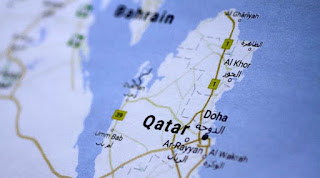
The challenges facing Jordan have been increasing over the last few months. While much of the focus has been on the external threats, modern history teaches us that while Jordan’s stability is inextricably linked with the stability of the region, maintaining stability amongst the population and the internal community is just as important.
The lessons learned from the uprising in April 1989 should lead us to what has been done to address the underlying issues that pushed people to take the streets. The south of Jordan holds the majority of the country’s wealth and resources – from potassium, phosphate, tourism and the key port of Aqaba. However people in the south are marginalized suffer from a lack of services, poverty and unemployment.
There is a distinct lack of development strategies or any serious socio-economic plan to address these issues. We need more than the same old rhetoric, and while there are no easy solutions in the short term, we must make a start now.
Jordanians have never been anti-state, in fact we do respect the establishment and believe that the GID and Jordanian Armed Forces (JAF) protect and guarantee our stability. It is important to capitalize on this and be careful not to lose that support.
The recent shooting of a police officer in Maan should act as a wake up call to respond to the risk of losing the people’s support. It is important to impose the state sovereignty and punish anyone who threatens this authority. But it is also important to remember that when people become frustrated from feelings of helplessness they lose control and so does the state. It also creates fertile ground for radical ideology to take root.
Jordan’s economy needs reform through a progressive vision that takes into consideration the change in international politics. Jordan should consider a more independent strategy that takes the needs and desires of citizens into account.
Recent incidents and risk indicators should serve as a wake up call to the political leadership to reconsider the concept of national security. It is not limited to technical security and border protection. There needs to be a more progressive strategy with programs that provides citizens what they need and communicates a coherent narrative to develop our economy and communities. Only this will combat radicalization and meet the challenges that we face as a nation and as a people.

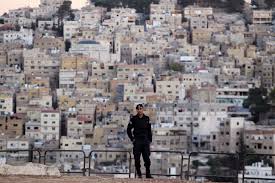
The ever dynamic geopolitics of the Middle East have been particularly fluid recently. Since the recent visit to Riyadh by President Trump, which included a summit and announcement of an anti-terrorism coalition, Saudi Arabia has positioned itself as the main political protagonist in the region.
If Saudi Arabia is serious about taking the initiative for real progressive reform within the Islamic world, then there is hope for change. However, it will not be easy, especially given the internal politics that the ruling class in Saudi is facing.
Separating the religious state and the nation state is the only real way to end the continuous official exploitation of religion. A clear division between the religious mandate as the custodian of the two holy mosques and the King of Saudi Arabia’s mandate as leader of the state is required. Religion must be depoliticized in order for an independent nation state in Saudi Arabia.
This would also mean that the Sunni Islam community would have a single interlocutor, who is also the custodian of the two holy mosques. This clear division could also create a clearer religious identity and legitimacy for the custodians.
In the meantime, we are also seeing normalization of relations between Israel and some Arab countries. The Israeli Prime Minister, Binyamin Netanyahu has referred to this on two different occasions recently. Firstly he said that Israel is more interested in peace with Arab countries. Secondly, when he welcomed President Trump to Israel, he commented that he looks forward to the day when a plane could do the same route that President Trump did but directly go from Jerusalem to Riyadh, rather than having to route through a third country.
The increasing normalization of Israeli-Arab relations and the potential for an exclusive group representing the Sunni Muslim community, combined would have wider implications across the region and the world. In particular it could politically isolate some countries and reduce their influence.
Jordan is one of the countries that could be affected by these developments. Sovereignty over al Aqsa Mosque in Jerusalem could stir competition and rivalry among Muslim political system. We saw the potential for this in the recent issues as several groups claimed to have influenced the Israeli decision to reopen the mosque.
Jordan’s strategic geography has always been an advantage, but clever strategic thinking is required in order to leverage that advantage. Given recent developments, Jordan should be seeking a complete change in attitude, strategies and political decisions.
Jordan should seek to reengage with Iraq and Syria, as in any process of re building Syria, Damascus could be the lungs from which Jordan breathes. Jordan also needs to pivot to bolster its internal systems as true legitimacy comes from a strong internal political system. There is a real risk of increased weakening of the internal regime as a result of external factors like the Al Aqsa mosque.
It is important also to review how Israeli-Jordanian relations have deteriorated to this point. The Israeli Ambassador and entire staff have left Jordan, which is effectively an unofficial severing of diplomatic ties. Given the peace treaty between Jordan and Israel, it is important to revise how both countries got to this point.
Jordan must focus and be smart enough to avoid the potential political isolation that could be a result of recent developments in the region.

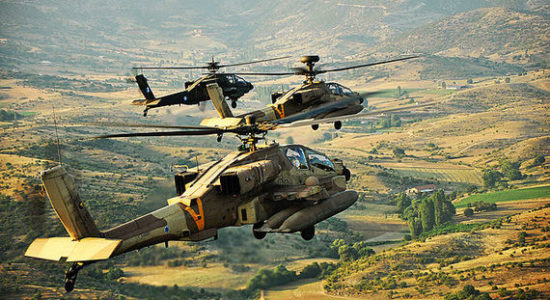
The current US administration has clearly adopted an anti-Iranian strategy that is not limited to rhetoric but also includes putting pressure on its allies to assist in isolating Iran.
Prince Tamim of Qatar gave a speech last week thanking the countries that opened air space for Qatari planes, without mentioning Iran. We also saw the recent Kuwaiti diplomatic crisis with Iran, which resulted in the expulsion of the Iranian ambassador and 14 other diplomats for alleged links to a spy and terror cell. The US President has also asked Sultan Qaboos of Oman to help contain Iran’s influence in the region, and observers are carefully witnessing the Saudi attempts to open a dialogue with Iraq as a further attempt to contain Iranian influence.
This coordinated effort is not limited to Iran, but also to its key allies. Recently we saw the US anti-Hezbollah rhetoric reappear as U.S. Ambassador to the United Nations Nikki Haley urging the U.N. Security Council to acknowledge that Hezbollah “is a destructive terrorist force” and “a major obstacle to peace” that is “dedicated to the destruction of Israel.” This rhetoric harks back to the 2005-2008 policies that targeted the Lebanese party and preceded the July 2006 war against Hezbollah.
This new approach was also seen during the Lebanese Prime Minister Saad Al Hariri’s last visit to Washington and his meeting with President Trump. The likely goal is to isolate Hezbollah and put more pressure on them as new agreements and understandings are being negotiated in Syria.
According to the US National Security Report, Hezbollah has not been listed as a direct threat to the US for the last three years due to its role in fighting terrorist groups. That assessment has clearly shifted as Hezbollah is being leveraged as part of the plan to isolate Iran. We are also likely to see greater US efforts to enforce decisions on Hezbollah and more calls on the militant group to disarm.
These changes in the US’ approach comes at a time where the activity in Syria is reducing, so Hezbollah is increasingly turning its attention back to Lebanon. Over recent years there have been reports that Hezbollah’s weaponization has peaked, including technologically. They have definitely suffered a significant level of casualties both in manpower and financially.
Hezbollah has also seen a shift in the level of support from their key supporter base, including areas that were generally regarded as social incubators for their movement. Yet they have been improving tactically and the soldiers and members they do have are battle hardened and have much more experience than previously from their extensive activities in Syria.
Even though Hezbollah may be facing serious political, social and financial challenges, it is still a serious and well-organized opponent to both the US and Israel. Hezbollah’s main strategy will continue to be based on raising the cost of war on Israel and trying to shift the battle lines south towards the upper Galilee.
It appears we are seeing the anticipatory phase before an inevitable confrontation, as Israel is not willing to accept the increasing threats that Hezbollah represents. Seizing the US strategy of isolating Iran, a fragile Syria and the consensus that many Arab states share on the issue of weakening Hezbollah. All of this suggests that the coming months might bring some attention’s shift from Syria to its neighboring countries.


Over recent months there have been questions about how Jordan has been invulnerable to any serious terrorist attacks, especially after the battles of Mosul and Raqqa. While there are many reasons why Jordan has not had a serious attack, there are also many signs that Jordan like any other country is not invulnerable and is indeed under real threat.
The Russo-American cooperation in the south of Syria has been a major factor in containing the threat of ISIS and protecting Jordan’s borders. However, the major security challenges Jordan faces are internal.
While on the surface the economy is the major challenge in Jordan, the underlying challenge is the lack of clear vision for the future of the country. If we compare Jordan’s development plans in the 1950s and 60s where we had national plans across major sectors, a well functioning bureaucracy and the creation of major institutions such as the University of Jordan, the Hussein Medical Center as well as radio and TV and sport city.
We have seen other major projects in more recent years, but we appear to have lost the national spirit and reinforcing national identity that comes with them. As part of this Jordanians have lost the feeling that their government represents them and that citizen dignity and respect is the priority of the system of government.
The loss of these sentiments is one of the major sources of discontent in Jordan. There is no denying that the socio-economic situation in Jordan represent big part of the problem, but the lack of narrative and clear direction for the future means people feel lost and confused.
In the absence of a national identity narrative, this vacuum is being filled by religious narratives that make people belong more and more to the past, making it more difficult to integrate and react positively to the present.
What Jordan needs today is a change in the political class, not in personnel, but how leaders and bureaucrats are thinking. Policies and plans should start thinking of collective efforts to achieve future goals. Jordanians need to discover their history to understand the value that their land represents and this would be the first step toward the change in mentality, behavior and how they interact with society.
Unfortunately, the policies of recent years have accumulated power in the hands of an inner circle in Amman, where most of the cities in Jordan have paid the price of being neglected at all levels. The main challenge today is how to reengage the youth so they feel they are part of this country, making them protagonists of change and development not antagonists of society. This cannot happen if the same people continue with the same approach, narratives and lack of vision that dominate the political scene at the moment.

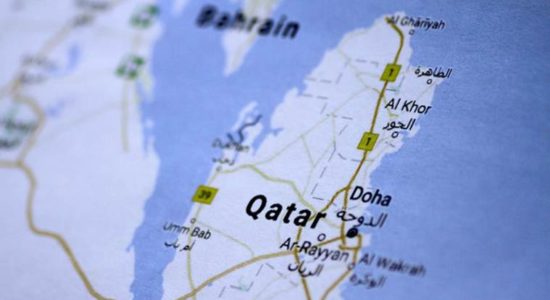
A few months ago when Saudi Arabia and other Gulf countries took a stand against Qatar, it was clear that the crisis is not a short term one. The countries involved have a long history of conflict with Qatar, including recent attempts to influence their policies.
While it is unlikely to be a short-term crisis, there is little suggestion of the potential for military escalation. Rather, it is more likely the next steps will be an escalation of economic and jurisdictional measures against Qatar.
In recent weeks the Qatari Foreign Minister has visited major global capital cities to speak with his counterparts who could influence international decision-making on the issue. The strategy is to demonstrate the Qatari willingness to negotiate on the key issues and to defend themselves against accusations of sponsoring and supporting terrorism.
Also under discussion is likely to have been the potential deepening of Qatari relations with Iran, which goes against the demands of the Gulf States. It is distinctly possible that this is already moving as indicated by events in Syria. Some believe that the recent progress of the Syrian Army and its allies on the ground are a result of the new Qatari position with Iran.
While relations with Iran are a useful political leverage point for Doha, it could easily backfire. Qatar’s strategy is heavily reliant on the US to step in to defend it; deeper relations with Iran are unlikely to lead down a path where the US protects it. Qatar has signed a MOU with the US to support the fight against terrorism; the current US administration may well interpret that to include Iran.
The US appears to be eager to contain the gulf crisis, despite the fact that the Trump administration’s containment plan for Iran is based on increasing pressure and isolation. As such, it will be interesting to watch how Doha pivots back to the US and distance itself from Iran in order to resolve the Gulf crisis.
Qatar’s other ally in Turkey is also struggling both in Syria and within its own borders. The US-Kurdish alliance is causing issues, enough for the Turkish President to publicly criticize its establishment quite bluntly, but to no avail. Internal Turkish politics are heating up with growth in support for opposition parties, internal fragmentation and increased security concerns.
What we are seeing is that Qatar’s two strongest supporters in the Gulf crisis in Iran and Turkey are unlikely to be able to maintain their positions in the longer term. Qatar’s best option is to position with the US as an impartial broker, however that will likely require Doha to accept a large part of the demands from its Gulf neighbors.


Any successful de-radicalization strategy requires an understanding of the nature of the problem and anticipation of the risks. It is it not an easy mission to comprehend the level of challenge unless there is, in the mind of the state, a long term vision with clear ideas about the model of the future Jordan.
Even with a solid approach, it is a difficult task. Frankly, we do not have strong de-radicalization narratives; instead we rely on the insufficient strategy of moderate clerics countering radical narratives. Without serious concrete changes in policies, communication and socio-economic development, this is unlikely to make a difference.
This is not a religious battle, but rather it is a battle of existence, of life and death, where people should be integrated into the present rather than being prisoners of the past. We need to make people feel positive about life, being productive and appreciating their existence. A comprehensive plan is essential, otherwise we are treading water towards failure.
Many would argue that radicalization is not the primary issue in Jordan, and that we just need to minimize the risk of violence and terrorist attacks. While we don’t have frequent terrorist attacks or major incidents at the moment, this kind of complacency will only lead to one outcome.
Radicalization is not only measured by security outcomes. The latent evolution of the phenomenon should be analyzed with a progressive methodology. If the current situation in many Jordanian villages and cities continues, radicalization will grow and in order for the state and its institutions to reflect societies positions, then policies and programs will adopt these radical tendencies.
These radical thoughts and approach will quickly spread through the security and military establishment as most recruits come from these villages and cities. Many would argue that the model we have is not radical, but the definition of radical will shift with the mentality of the people. The risk is when people reach the point where their attitudes, social behaviors, and thoughts are unconsciously radical, the state moves with them and radicalism is normalized.
The major challenge is, understanding the deep cultural problem of radicalism. We need a serious political will for change so we can hope to have smart minds to predict the problems and future implications through a serious diagnosis of the problem across all sectors of the population. Radicalization is not limited to school curricula or religious narratives. It needs to be at the top of the agenda for national security, from the revision of the security system, the state communication strategy and the socio-economic process. While it is a long process, a concerted and serious effort is required now to ensure that outcomes are achieved in the long-term.

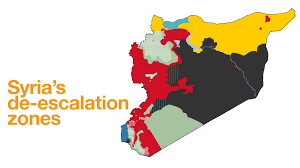
The recent policy to implement de-escalation zones, where Syria is divided into separate areas where different groups are based, is the first concrete steps toward saving the cease-fire and imposing stability in Syria on the pathway to ending to the conflict.
The broader impact of the Gulf crisis is currently being felt in Syria as well. Several experts have commented that since the boiling over of tensions with Qatar there has been increased confusion among the fighting groups in Syria.
This confusion is working to the advantage of the Syrian army as they recapture territories that they previously controlled. Multiple public sources are reporting a significant decline in military activity across Syria, including Idlib, Deir Al Azour, Joubar, and even Daraa.
The confusion also provides opportunity for exploitation from other players in the conflict. Turkey’s ambiguous position suggests they are eager to have a role in any agreements to exert control in the north of Syria and manage the risk its faces from the US-Kurdish alliance.
The interest from Turkey provoked Iranian involvement, which was demonstrated by Iranian missiles fired into Syria. Clearly, Iran will resist any attempts to diminish its influence in the conflict and any reconstituting of a new government. Continued Iranian involvement will then guarantee greater and ongoing interest from Israel, which has also been launching attacks and raids against Syrian military posts.
The fighting in Syria has always been complicated, and is the current front for ongoing regional tensions and conflicts. The policy of de-escalation zones is a potential source of stabilization and eventual ceasefire. However, for this to be a success, greater international efforts are required where countries not currently engaged in the conflict, and those that do not have a clear alternate regional agenda step in.
The current regional players in Syria are using it as a battleground for their underlying conflicts, which clearly does not align with the objective of stability. The new de-escalation zones policy creates separate geographies where countries in the region can play a role in guaranteeing success, but must be directed under the umbrella of the international community.


Any process of change requires a strategic plan with clear visions, objectives and an action plan. When it comes to sensitive issues like cultural change and de-radicalization the process must also include insights into the latent and hidden risks not just the obvious ones.
The issues of protecting pluralism, rights of individuals, and above all the liberty of citizens are becoming increasingly concerning in Jordan. Recently, we have seen several incidents that demonstrate a lack of any progressive vision to protect pluralism, diversity or even personal liberties. These situations require a prompt and decisive intervention from the state.
In Jordan recently, there is a growing trend of protests on social media guided by some groups to impose their thoughts on others. Some of the campaigns that have been run, and won include banning concerts and movies as well as condemning particular people. The idea of organized campaigns is not the issue here, the real problem is that the government is blackmailed by these vocal minorities and enacts their wishes, over the wishes of the majority.
We have also seen incidents reported recently where the police have punished those who are not fasting during Ramadan, regardless of their situation. It is greatly concerning that anyone, let alone our police believe that “divine law” overrules the law of the state. It is a real problem for our society that our police believe that they can enforce religious law according to their interpretation of it. We are a society where the laws of the state, as enforced by the police and upheld by the judiciary are the only laws that apply to all.
This is a national security issue and it serves as a reminder of the tragic assassination of the Jordanian writer Nahed Hattar last year. These groups do not represent all Jordanians. They are a vocal minority, and our silence creates the impression that they are representative of the majority.
The government should be the protector of the people’s rights and liberties. Unfortunately we are seeing incidents where the government and its representatives did not demonstrate an understanding of the importance of protecting pluralism. On some occasions, the government’s actions suggested they do not even understand the issue of radicalization. This is dangerous for our society, both for our culture and security.
We can go back to Zarqa in 1993, a town famous for its many cinemas was subject to a terrorist attack planned by Zarqawi. The government response focused on security and they arrested the terrorists. There was no plan or response to protect the cultural movement by building more cinemas or declaring they were safe. Today, there are no cinemas in Zarqa. The terrorists have clearly achieved their goal in this town. We must maintain physical security, but we must also dearly protect our culture, our rights, our very way of life.
While the role of the state and its laws is to protect diversity and personal liberties, it must also prevent the exploitation of religion and the reinterpretation of history and traditions by certain groups to suit their own ideology and brainwash their followers. This can only be achieved with a clear understanding of the nature of change, long-term vision, political determination and actions everyday, day after day. If any of these elements are missing then the process of change or even protecting the current status quo will not be possible.


The roots of the tension between Qatar and other GCC countries go back several years to the Arab Spring. During this time, the GCC countries felt that Qatar was playing an active role in feeding the discontent, and the dispute was resolved with the transition of power of the Emir Hamad bin Khalifa Al Thani to his son Tamim in 2013. As part of this transition, Qatar provided assurances of a shift in the role they played in the region.
The following year, the Gulf countries were not content with the progress and Saudi Arabia, the UAE and Bahrain all withdrew their ambassadors from Doha and called for similar sanctions that have been applied this week, including the cutting of diplomatic ties and closing all land, sea and air borders with the Gulf states.
The events of this week are the culmination of these tensions that have been playing out over the last four years. Qatar is accused of supporting extremism, which they have not made any effort to counter. In fact, Doha has undertaken aggressive media campaigns against Egypt, UAE and Saudi Arabia through the wide network of media outlets that they sponsor.
The issues with Qatar span the Arab world, as the impacts are felt across the region. The main players have tried over several years to promote change in Qatar, to no end. While it may appear reactionary, this process has been playing out for many years, and Qatar has not sufficiently responded to ease the tensions or address the concerns of their Arab neighbors.
This process of isolating Qatar is part of a systematic plan that is likely to attract international support. The move comes immediately following President Trump’s visit to Riyadh where he called for an Islamic coalition to fight terrorism and radicalism.
These developments place much greater pressure on Qatar to shift its policies and actions. The promises of the past are no longer going to be enough, and Qatar will need to provide concrete actions in order to avoid further complications for its relationships within the region and internationally, which will fundamentally impact on its economy.
From a Jordanian prospective, Jordan is fully aware of the current situation and recognize that it is no longer a Gulf conflict, but one that impacts all Arabs. Furthermore, Saudi Arabia, UAE, Bahrain and Egypt are key strategic allies for Jordan, so it was very logic for Jordan to consider a supportive position on this issue.

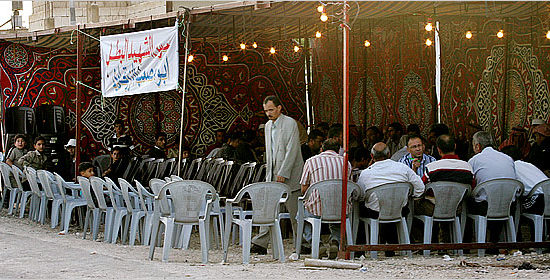
To win over radicalism, it is important not to forget that this battle is much deeper than a social media campaign or the promotion of certain rhetoric and narratives. It is also important to understand the psychology of these groups and how their leaders enjoy such widespread support.
In his book Black Flags “The Rise of Isis” Joby Warrick tackles the life of Al Zarqawi, the Jordanian terrorist who gained international notoriety and laid the foundations for ISIS. It is interesting to consider how these terrorists are viewed amongst different groups. Despite being a violent terrorist and an enemy of the state, many still see him as a hero.
Promoting the narrative that the state is an enemy of its own citizens fuels feelings of hate towards the state, its institutions and representatives. Al Zarqawi was seen as a strong leader amongst his followers, partly because of his strong positions against the states and its representatives, and was seen as a protector of his followers; “Despite his harsh manner, he won admirers because of his fearless defiance of prison authority.”
This arouses further inquiry around the underlying reasons for terrorists being seen as heroes. These groups enjoy impassioned solidarity amongst its members, as the group provides elements to their lives that general society has not. When states fail to uphold social justice and national identity, people can often seek these comforts elsewhere.
Fostering a sense of brotherhood can replace the failures of integration in society. These groups tap into feelings of exclusion, oppression, humiliation and the violation of human dignity. According to the book, Zarqawi appeared to be caring and a defender of his fellows, he presented himself as someone who stood for their rights and to protect their dignity. In one story, he appeared to fight for an ill man named Jahaline not just to receive the proper medication but also respect.
This extract is an illustrative example of the role that Zarqawi played for his followers: “One evening, while Sabha (the doctor) was visiting the cell, Jahaline suffered one of his occasional meltdowns, a screaming fit that usually required treatment with antipsychotic drugs. Sabha grabbed a syringe and was preparing to administer the shot when Zarqawi stepped forward to block him. Without a word, Zarqawi took a blanket from one of the beds and draped it over Jahaline’s lower body. He held the blanket in place with one hand, and with another tugged at the elastic waistband of the disabled man’s trousers, exposing him narrow crescent of skin. Then he motioned to the doctor. “Just make sure it’s in the right spot,” he commanded. When it was done and Jahaline was resting quietly, Sabha looked up to find Zarqawi watching him with a look of satisfaction.”
The point is that in our de-radicalization and anti terrorism strategies, we must consider how these groups work, on the psychology of the people involved. Being an outlaw has always had an attraction for certain people, and outlaw groups have for centuries leveraged the sense of protecting members from social injustice and failures of the state. Robin Hood, the hero that we all admire was in reality an outlaw. But in the story he is only an outlaw because of injustice in the system, so the people saw him as a hero fighting for their rights.
To be effective in de-radicalization, there should be also process of imposing justice, protecting human dignity, giving people the chance to live a better life and participate in building their future.

We use cookies to ensure that we give you the best experience on our website. If you continue to use this site we will assume that you are happy with it.Ok










